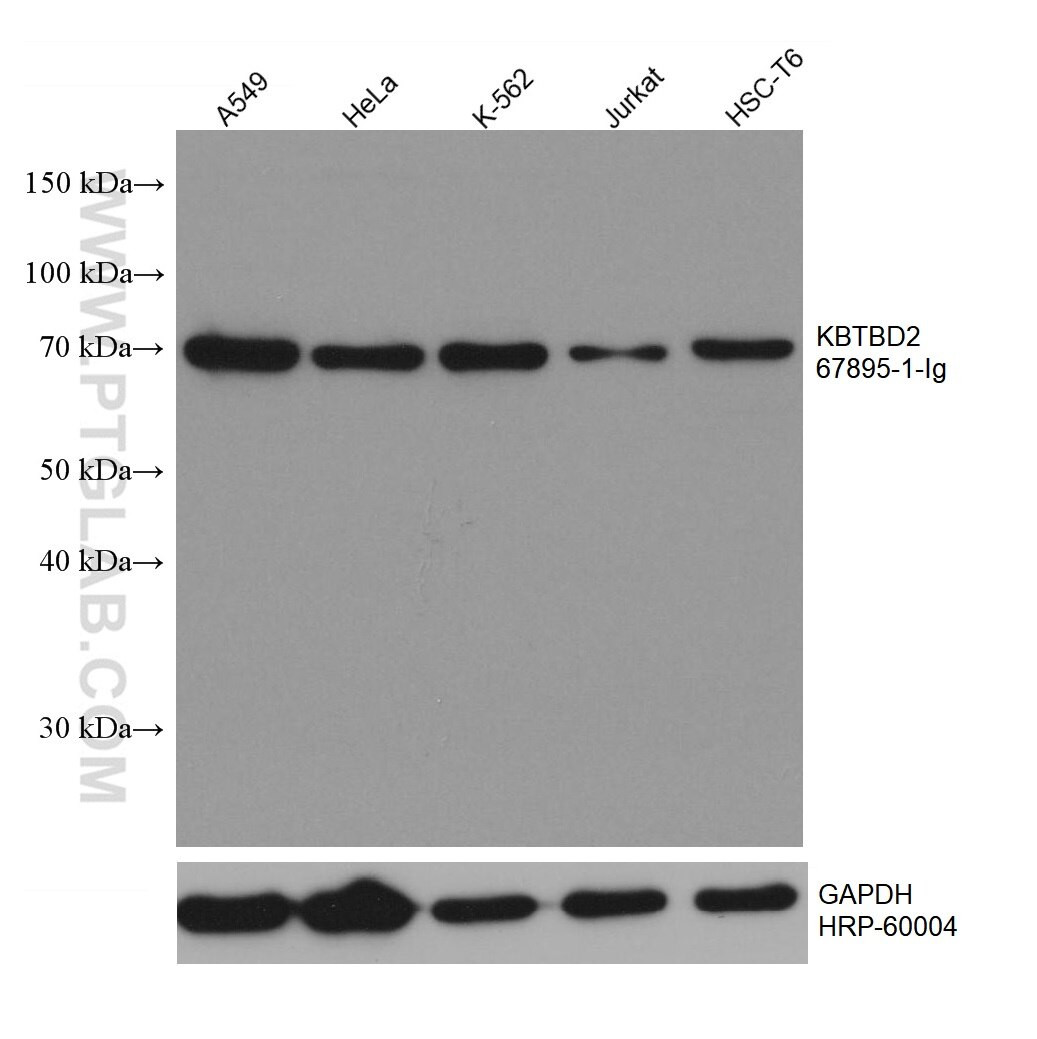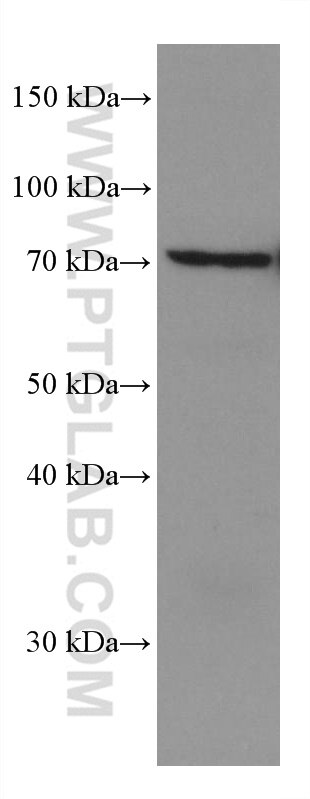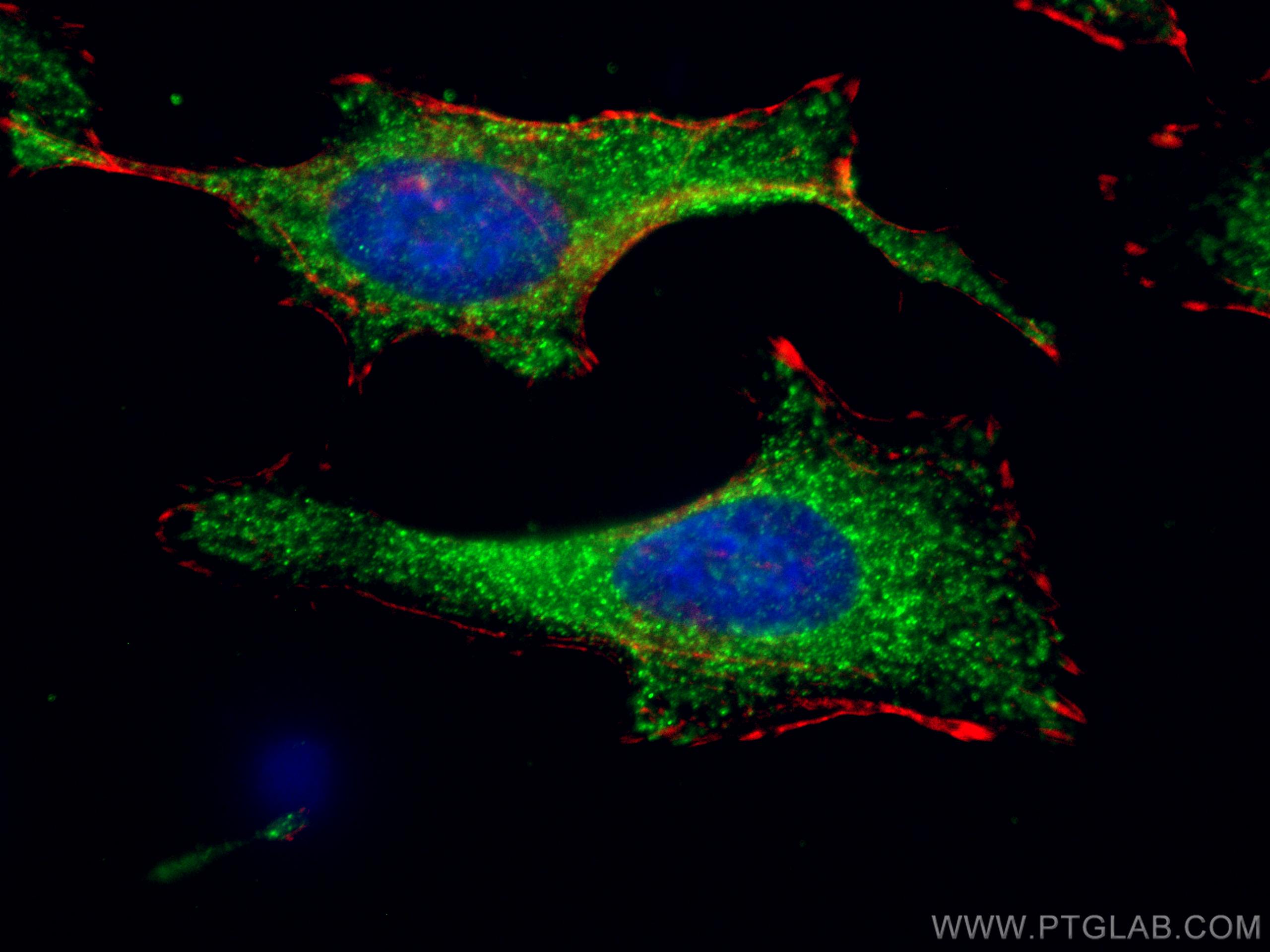- Featured Product
- KD/KO Validated
KBTBD2 Monoklonaler Antikörper
KBTBD2 Monoklonal Antikörper für WB, IF/ICC, Indirect ELISA
Wirt / Isotyp
Maus / IgG1
Getestete Reaktivität
human, Maus, Ratte
Anwendung
WB, IF/ICC, Indirect ELISA
Konjugation
Unkonjugiert
CloneNo.
2A9F3
Kat-Nr. : 67895-1-PBS
Synonyme
Geprüfte Anwendungen
Produktinformation
67895-1-PBS bindet in WB, IF/ICC, Indirect ELISA KBTBD2 und zeigt Reaktivität mit human, Maus, Ratten
| Getestete Reaktivität | human, Maus, Ratte |
| Wirt / Isotyp | Maus / IgG1 |
| Klonalität | Monoklonal |
| Typ | Antikörper |
| Immunogen | KBTBD2 fusion protein Ag4933 |
| Vollständiger Name | kelch repeat and BTB (POZ) domain containing 2 |
| Berechnetes Molekulargewicht | 622 aa, 71 kDa |
| Beobachtetes Molekulargewicht | 60-70 kDa |
| GenBank-Zugangsnummer | BC047107 |
| Gene symbol | KBTBD2 |
| Gene ID (NCBI) | 25948 |
| Konjugation | Unkonjugiert |
| Form | Liquid |
| Reinigungsmethode | Protein-G-Reinigung |
| Lagerungspuffer | PBS only |
| Lagerungsbedingungen | Store at -80°C. 20ul Größen enthalten 0,1% BSA. |
Hintergrundinformationen
Kelch repeat and BTB domain containing 2(KBTBD2), also known as BTB and kelch domain-containing protein 1, encodes a BTB-Kelch family subunit that p85α-specific recognition for the Cullin3-based E3 ubiqitin ligase complex, which regulates p85α protein ubiquitination and subsequently regulates phosphoinositide-3 kinases (PI3K) signaling (PMID:27708159). However, the expression profile and functional significance of Kbtbd2 is still largely unknown. The Human Protein Atlas which is an online source shows high Kbtbd2 expression in the spleen and thymus, suggesting that Kbtbd2 might involved in immunization (PMID:29331106). In addition, Kbtbd2 is related to Src-induced phosphorylation of protein, spermatogonial stem cell activity(PMID:15623525, 29331106).







